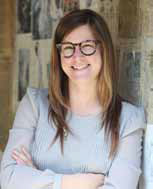Kirsten Nelson As we reach the end of Pumpkin Spice Latte (aka #PSL) season and Starbucks celebrates the 10th anniversary of that fine beverage, it might be a good time to reflect on the evolution of coffee culture in the 21st century. Gone are the days of clumsy customers stumbling over sizes, types of milk, and flavor shots. Now everyone knows exactly what they want and how to get “half the pumps” to prevent the spontaneous trigger of a diabetic coma from flavored syrup. We are, indeed, very sophisticated.
Meanwhile, alongside the PSL’s meteoric rise to massive-queue-forming status over the past 10 years, there was occurring an equal and opposite reaction by snobby coffee connoisseurs who rejected the addition of any artificial flavor, sugar, milk, or other detrimental palate distractor to their beverage of choice. These aficionados devoted themselves to “single origin” coffees roasted locally for ideal expression of nuance in every cup of espresso perfection.
Having recently been mocked for my despondent cries for a real espresso while enduring my third trip in as many weeks with only drip coffee on offer, I will openly admit that I am part of the latter category. But I am also guilty of greedily consuming a Salted Caramel Mocha (#SCM) on occasion. So I can speak to both sides of this divide and say that we all want coffee to exhibit a custom flavor profile. We do not want generic, burned-coffee-urn residue. We want to cultivate the uniqueness of our palate while enjoying the happy benefits of caffeine consumption.
In response to this demand, an increasing number of competitors are offering custom roasts to differentiate themselves from the coffee shops across the street, around the corner, and in the little huts with drive-through windows. At first, these custom roasts were developed on premise, with expensive roasting machines that make a lot of noise and emanate the smell of burned toast. But as the proliferation of “custom” continues to spread, a new business entity has entered the scene: Coffee roasting collectives, with in-house experts poised to assist cafe owners in the development of branded esoterica in their beans (single origin or blends).
Can you taste the difference? Well, you better learn how to taste the difference, because an eight-ounce bag of coffee can cost $25 these days.
Ultimately, customers want to feel as though their own amazing individuality is reflected in their purchase of goods, and they will pay more if they think your brand elevates their status. So, take a sip. What makes your offerings different, and how can you package that formula in such a way that you can charge a premium for your expertise? Ideally, your clients will stand in line with their well-rehearsed orders to buy what you have to sell.
